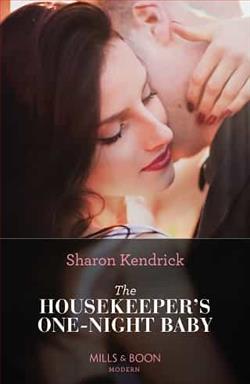Page 16 of Their Master
He and Edward had started off in just one building and had already expanded to three more. In fact, the reason for their meeting today was to sign papers for a new property, where they would have a pottery, which was something new they were trying.
“Aye, it’s a fine thing,” Edward agreed, his suspiciously dewy eyes flickering over the twelve young men who were companionably working at various carpentry projects, their instructor moving among them to offer guidance where needed.
Edward, once a carpenter himself, often volunteered his time at the school.
Smith had no marketable skills—well, nothing that wouldn’t land the young men in either trouble or jail—so instead of teaching he sometimes took groups of students on field trips to interesting London destinations.
Thus far they had visited the British Museum, the Tower of London, the National Portrait Gallery, and the Royal Botanic Gardens. Although most of the boys came from London, they’d been too busy trying to survive the brutal streets to visit such privileged places.
Thinking of orphans reminded Smith of another matter. “When will you officially become a father?”
Edward’s grin threatened to split his face. “Amelia will be with us by the end of the week.” The child in question was almost two years of age and recently orphaned.
“So soon! Congratulations, Edward.”
Edward blushed, the reaction surprising for a man whose scandalous first marriage and divorce had been front page news for almost a year, and who was generally believed to be one of the most jaded men in England.
“Thank you,” he said quietly. “Nora and I are pleased to share what we have.”
What theyhad, in addition to an obscene amount of money, was a very loving marriage. Although many in society’s upper strata believed the couple to be beyond the pale, Smith knew the girl was extremely fortunate in her new parents, and he was pleased for his friends.
“We’ll have you over to dinner once she is settled in—then you can meet her,” Edward said.
“I would like that.”
After taking his leave of Edward—who would issue the first work orders on the new building—Smith decided to walk home, rather than take his carriage.
“You can go home,” he told his coachman, and then glanced at the two guards. Smith was tempted to dismiss them, too, but he had damned good reasons for employing them, so he waved them to follow.
The last time he’d been attacked—a year ago by an enraged worker from one of their textile mills—he had ended up with a black eye and several cracked ribs. Although he’d neutralized that particular threat, there were always more. As the face of—and often enforcer for—his business syndicate, Smith was a magnet for discontent.
Then there were his own, non-syndicate businesses and pursuits, several of which had earned him more than a few enemies.
So, Smith allowed Larry and John to follow behind him—not too close to impinge, but close enough to step in if necessary.
He put his bodyguards out of his mind and thought about Edward’s happy news. Smith envied Edward and Nora—both their marriage as well as their impending parenthood.
Families and children were not subjects he thought about often, even though his own family had been both extensive and tightly knit, but he seemed to be thinking about them a great deal lately.
Indeed, ever since Smith’s last birthday, when he’d turned forty-five, he’d begun to contemplate his own mortality. Usually, it happened in the early hours of the morning when insomnia imprisoned him in its brutal grasp.
He was well-past the half-point of his life—by a decade at least—although his family had traditionally enjoyed long lives.
Well, until they hadn’t.
The screams of his mother and siblings were faint now, as was the smell of blood, gunpowder, and death. In fact, sometimes his memories were so vague it felt as if his past had happened to somebody else.
He supposed, in a way, that was true.
Smith, the man he was now, had no family and no history—not even a first name. All he had was a great deal of money and nobody to share it with or leave it to when he was gone. It surprised him how displeasing that last thought was. After all, what did he care? He would be dead.
But Edward’s talk of children had stirred something inside him. And seeing the light in his eyes—not to mention the joy in Nora’s the last time they’d met—at the prospect of having a child in their lives had given Smith an odd sense of yearning.
Nora being Nora—which was to sayastutebeyond what was comfortable—she had seen Smith’s yearning. “Just because you don’t want to marry does not mean you cannot have a child,” she had told him the last time he had taken her to tea—something Smith did monthly, just the two of them.
Even though Edward was fiercely possessive of his wife, he had learned not to stifle Nora—something Smith would eternally be grateful for—so he’d never insisted on joining their private monthly teas.
“I wouldn’t want to bring a bastard into the world,” Smith had said.















